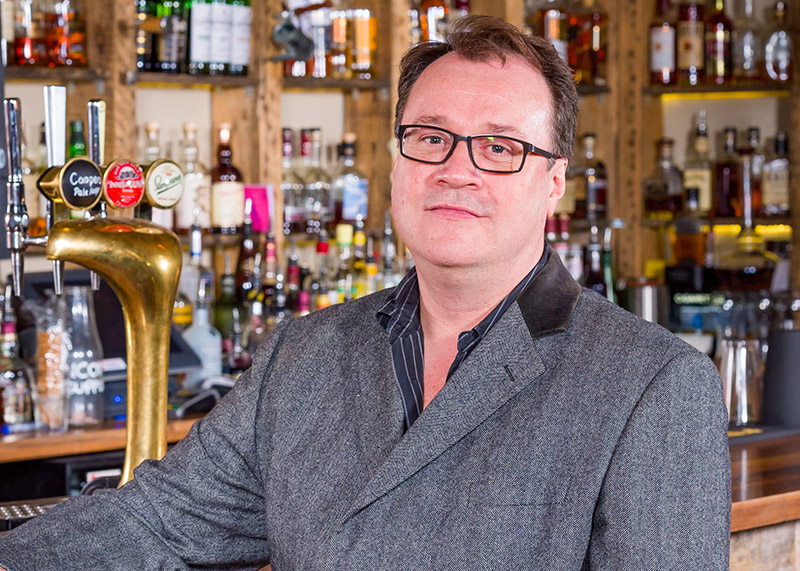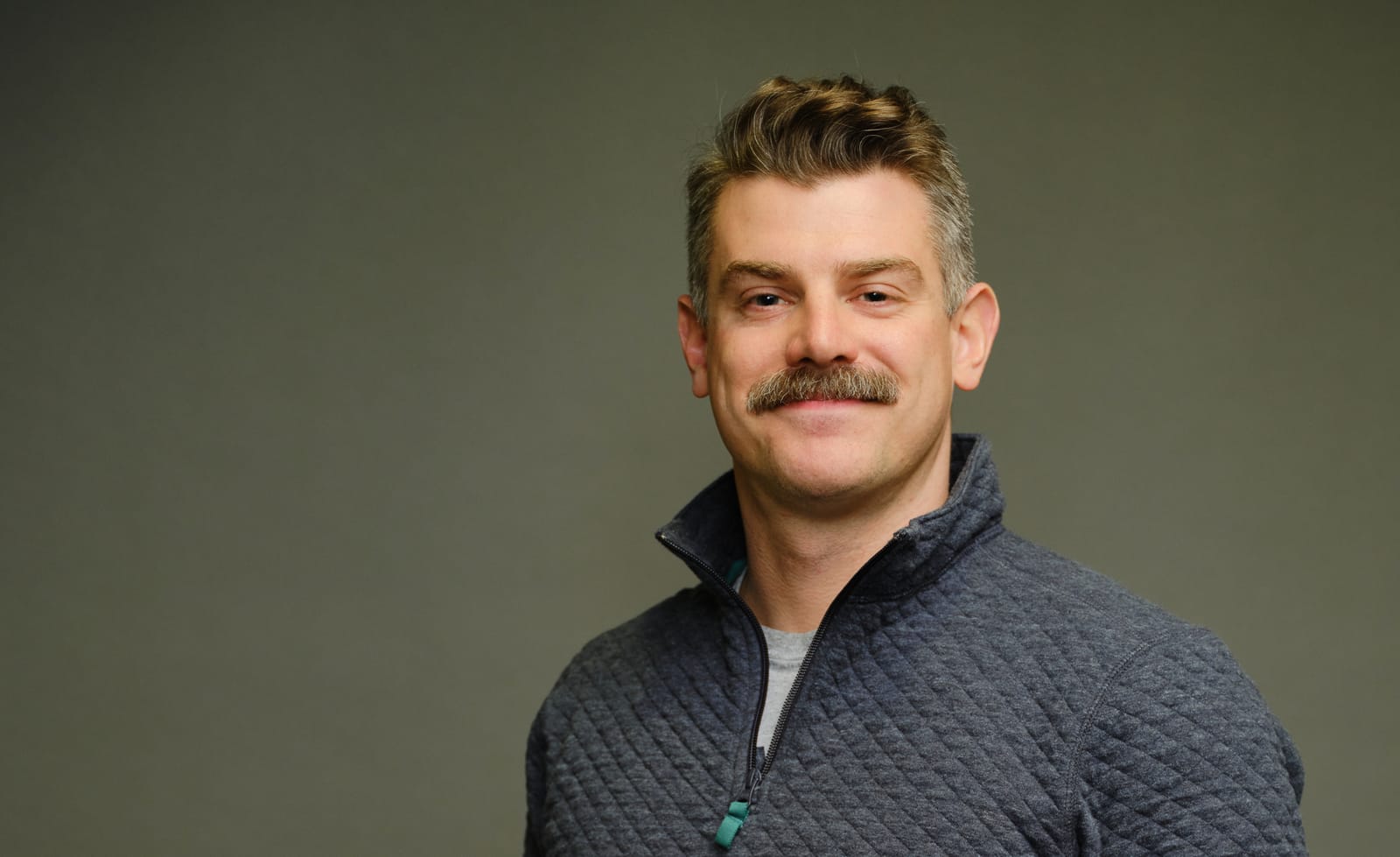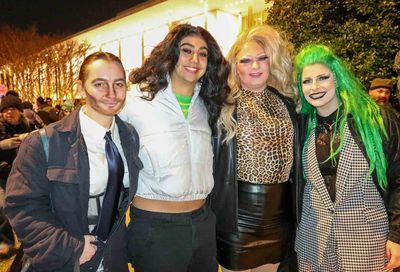Olly Alexander on going solo, surviving a pandemic, and being “more gay”
Anti-gay backlash "makes me want to be more gay," says the Years & Years singer

Olly Alexander rang in the New Year slaying alongside legends. As host and headliner of BBC’s The Big New Years & Years Eve Party, the Years & Years frontman bridged generations of queer culture duetting with the Pet Shop Boys on their classic “It’s a Sin,” and tripping the light disco fantastic with Kylie Minogue on their recent collab “A Second to Midnight.”
“I need you, Olly,” Minogue beckoned, as Alexander emerged onstage in a pair of Louboutin platform heels. Kylie might have been speaking for legions of fans who have also fallen for the singer-songwriter and actor. His endearing performance as bon vivant Ritchie in Russell T Davies’ ’80s-set AIDS drama It’s a Sin won hearts around the globe. The performer was already on a first-name basis with Years & Years fans, moved by the electro-pop groove of the band’s string of chart-topping singles off albums Communion and Palo Santo.
The latest Years & Years studio release, Night Call, marks the first as an Olly Alexander solo project. An R&B and funk-influenced, straight-up, get-down dance record, Night Call comes as the culmination of what Alexander calls a “whirlwind” year. From the phenomenal international success of It’s a Sin, to parting ways with bandmates Mikey Goldsworthy and Emre Türkmen, burning up the 2021 Brit Awards duetting with Elton John, and undertaking some major personal changes, Alexander enjoyed high-profile triumphs and endured his share of private setbacks.
At his lowest point, Alexander thought Night Call might never see the light of day. “Like a lot of people,” the 31-year-old recalls, “there was a lot of compounded negativity, and some of it was related to the pandemic, the isolation. I’d just been on my own for too long. I felt like I didn’t really have any drive, or putting out music just felt so low down in the things that literally anybody in the world needed.”
But he changed his mindset partly by finding a fresh beat, focused on dancing away the blues. “I made a lot of the music with Clarence Coffee, Jr., and Nathaniel Ledwidge, and Mark Ralph, all three incredible musicians, all really good at different areas. They definitely brought funk, and I brought the stuff that I loved to listen to into the studio, and just tried to put having fun and moving my body at the top priority.”
The resulting collection of sultry, throbbing electro-pop — like the second single “Crave,” which teases “The only thing I crave/is the pain from you” — should get a lot of people moving their bodies, and not just on the dance floor. Along with Alexander himself, fans can shake off their funk, and get into the next daring evolution of Years & Years.
METRO WEEKLY: We talked almost exactly a year ago, the day after It’s A Sin had debuted in the U.S. I guess a lot has happened for you, there were changes in the band, you had this series. What has the last year been like?
OLLY ALEXANDER: It’s been a whirlwind, definitely. So many incredible experiences, loads of high points that I’m still processing, to be honest. But also I feel the word of the year was definitely “change.” Just because everything in the world was changing, coming out of — well, we’re still in a pandemic — but as restrictions were easing, then that was obviously change. And stuff in my personal life changed. I moved house, and became a solo act, and stuff like that. So, it was a lot, but it was good.
MW: One thing that actually turned out exactly as was stated in our conversation, you said that the next Years & Years album would be something “you can dance to.” And I want to report that I have been dancing to it all week long.
ALEXANDER: Yay!
MW: Albeit dancing in my apartment. Why did you want to do a dance record right now?
ALEXANDER: Honestly, it was just the music that I’ve felt inspired by. And when I was spending all this time in lockdown, especially in 2020, I didn’t want to listen to any slow music, any sad music. Even though I was by myself for most of it, just dancing around in my flat, and really falling back in love with dance music, and the music that I loved when I was going out, in my early 20s, and going to the club — I was missing all of that so much. So I was just like, “Okay, well I’ll create my own escape with the music.”
MW: Are you dancing around to it yourself these days?
ALEXANDER: Yeah, I actually am. I actually danced around to it earlier, just before this interview. Because we’re putting out a track at midnight, called “Sooner Or Later” from the album. And I wanted to hear it again, because I hadn’t heard it in a while. So I was like, “Okay, I want to listen.” So I was dancing around. Yeah, I enjoyed it!
MW: Something you mentioned in our prior discussion was the influence of Prince and “Do You Wanna Funk”-era Sylvester on the music you were making. I really hear that, especially Prince on “Reflection.” What is your process for arriving at exactly the sound that you wanted?
ALEXANDER: Oh my gosh. Well, it’s definitely always a journey for sure with everything. I usually have no clue what I’m doing most of the time about anything, but what I cherish so much about music is the artists that I love, that I take so much inspiration from, like Prince, like George Michael, like Stevie Wonder, the legends. And I just love that music, and falling back in love with that music, and listening to a lot of it. And Sylvester, because I feel it’s the energy and the rawness in the vocal, there’s a boldness and a directness in the vocal, that can be quite confrontational sometimes, but it’s fun or it’s playful. George Michael did a bit of that in the way that he asserted his sexuality in some of his songs, like “Outside” and “Fastlove.” And I just really wanted to put all of that in, and create my own version. Ah, I love those artists.
MW: As far as asserting your sexuality on the record, a lot of the songs — “Intimacy,” “Crave,” and “Night Call” — deal with being really bold about asking for what you want, getting what you want in the bedroom from a sexual partner. But also the songs imply that consent is really important. Is that something that you think about when you’re writing?
ALEXANDER: Well, number one, consent is always super important. Some of the songs, I was really getting into the character of being bold and asking for, like you say, what I want. And the stakes being really super high, in the drama of the song. With “Sooner Or Later” even, the lyric in the chorus is so intense. It’s so dramatic, like, “Heartbreaker, you’ll be the death of me/Sooner or later.” You know what I mean? Like, “I’m going to break you.”
I definitely don’t really give that energy in real life, all the time, but in the song you can really go there, and explore that side of yourself. I just was like, “Okay, I want to do that as much as possible on this album.” And always be a little bit tongue-in-cheek, but leave it up to the listener to read between the lines.
MW: Speaking of the drama, it’s not, clearly, a breakup album. It’s not a romance album. Is this like Years & Years’ Erotica or Beyoncé self-titled, is this the fucking album?
ALEXANDER: Oh, I mean, both those albums, I love them so much. I actually was listening to the self-titled Beyoncé album really recently, like, oh my God, I love that album so much. I think it definitely was a step-by-step process — it took a while for me to go, “Okay, this is what the record is about, this is what the album is about.” And I felt way freer than I have in the past.
I’m not saying that I haven’t felt like myself in the past writing music, but over the years, I’ve definitely grown into myself more, and just felt more confident to care less about what people think, and care less about just holding onto stuff that maybe I did in the past. And, obviously as well, I used to make music with Mikey and Emre, and that process was just different. So I was like, “Okay, if I’m going to do this by myself, I really want to just express myself.” [Laughs.] So lame.
MW: You’ve already put out videos for “Starstruck,” “Crave,” and “Sweet Talker.” To what degree do you consider yourself a visual artist as much as a performing artist?
ALEXANDER: Oh, well I guess for me, if I’m going to put a video out and if it’s a Years & Years video, it has to be good. It has to be my vision. I always collaborate on the videos. And that’s a key part, the people you work with. And I’ve worked with some amazing people, but I always have to feel like it comes from me, because otherwise I’m just like, “Why am I making a video?” So I always make mood boards, and collages, and PDFs and stuff, with ideas and then send it to a director or whatever. Then you bounce ideas back and forth, and then make the video.
I think it’s all part of the same thing for me. I want people to, when they think of Years & Years, even if they just hear a song, or they catch a little bit of a video, or they see a bit of a live performance, whatever it is, even if it’s a piece of artwork, it’s always going to give you the core of what Years & Years is, which is a bit of magical, bit of magic, and fantasy. So I try and do that across the board.

MW: You’re intuiting my next question, because there’s fantasy imagery all over Night Call, from you posed as a siren on the album cover, to the video for “Crave.” What is it that you’re supposed to be in that? Are you like a Hindu nymph or something?
ALEXANDER: [Laughs.] A Hindu nymph. So no, my official title is Dionysus. And there’s a movie called Pink Narcissus [by James Bidgood] and it’s amazing. I was so heavily inspired by that video. And I wanted to do a crossover between that — I mean that itself, it combines a lot of mythological elements — but that combined with a fairytale story. And so I was going to be painted green, but then green looked weird with my hair. So it was like, “Okay, let’s be blue.” I’m like a blue nymph. But I just get turned on by that stuff in a, well, in a both sexual and nonsexual way, do you know what I mean?
MW: You mean the mythological creature, fantasy aspects?
ALEXANDER: Just that area of storytelling. I always return to that. Even with Palo Santo, it was all about androids and the moon, and all this crazy sci-fi shit that’s just another branch of my obsession with fantasy and telling stories that way.
MW: What about touring in the pandemic era? When it’s not impossible, what’s it like being on the road? I saw that Years & Years is scheduled for dates in Australia, Europe, and the U.K. later this year. But anything could happen.
ALEXANDER: I mean, it’s definitely nerve-wracking because you just don’t know what’s going to happen, basically. I hope very much to be able to tour this year. I think it will definitely happen. It definitely won’t be the way that we would’ve done before the pandemic. It’ll be different. So I’m just waiting to see, but it’s obviously frustrating, because I love that part of the thing. That’s my favorite thing to do, which is to do the show and perform, it’s so fun. I’m just, I mean, fingers crossed.
MW: I watched a bunch of Years & Years performances on YouTube, and I really enjoyed your cover of “MONTERO (Call Me By Your Name).”
ALEXANDER: Oh, thank you.
MW: You intro the song by saying it’s by an artist that you greatly admire. What is it about Lil Nas X that you admire?
ALEXANDER: There’s a lot, to be honest. He’s just so fearless. He has an idea, he has a vision, he executes it. He doesn’t compromise. I’m just like, “Wow, this is amazing.” And he’s also just really good at what he does. He’s so charismatic and it’s rare to really find a performer that can give you all of that. That can give you the look, the movement, the charisma. Just fully on those levels, I think he’s got it.
It’s super inspiring to see him do his thing, and just be so undeniable. I really think there’s before Lil Nas X and after Lil Nas X, obviously. It’s changed the industry in many ways, because it’s proved to people that you can be a star, he’s such a star. So yeah, I think he’s cool. Well done.
MW: On to other admirable artists, I had already obviously seen the performances with Kylie Minogue, and with Sir Elton at the BRIT awards. That’s something that happened in the last year. How does it feel to be embraced by artists that I imagine you admire?
ALEXANDER: I mean, it’s insane. It’s hard to really articulate, because you don’t want to sound really crazy about it, but it’s an honor to spend time with these people. They’re part of pop culture history, and they’re also legends, you know what I mean? There’s a reason for that, because they’re so good at what they do, but also just really great people to be around. So yeah, I cherish the time that I’ve spent with them — with all the artists that I’ve been lucky enough to work with. But especially in the last year, Elton John, Kylie, the Pet Shop Boys. They have inspired me ever since I was growing up, and to have a little insight into their lives and how passionate all of them still are about music, that’s just so cool. It’s the coolest thing ever. I’m like, “Wow, can’t have a bad day when you have a song with Kylie Minogue.”
MW: No, I think not. And it leads to another question: I’m wondering if singing a Pet Shop Boys song, standing atop Elton John’s piano, is that literally the gayest thing you’ve ever done in your life? Or maybe making disco with Kylie Minogue is the gayest thing?
ALEXANDER: You know what? It’s actually so difficult to know which is gayer, my God. [Laughs.]
MW: I don’t know, singing atop Elton John’s piano, that’s the gayest thing ever.
ALEXANDER: I don’t know if it gets gayer than that. Oh, there’s such a good photo of me and Elton. I look like I’m sat on his lap, just in a crop top and my flared, tight trousers. I was like, “Wow, this is the best day of my life.”
MW: Looking at artists like Lil Nas X, or Sir Elton, and a lot of other queer artists right now who are getting exposure in both mainstream and social media, there’s still also homophobia and hate literally everywhere. So beyond exposure, what barriers do you still encounter?
ALEXANDER: It’s weird. So recently I did a show on the BBC for New Year’s Eve, and there was just an article in a paper yesterday, about how 179 people complained to the BBC that the show was too sexual. Which is such — I mean, I just love that. It’s so amazing. But I remember, when the show was on TV, I could see people get pissed off that this was on their television. And it’s like, number one, you can change the channel, but whatever. The response was largely super positive, but some of the negative stuff I saw, it’s just people using it to support whatever stance they’ve taken in the culture war.
They think, “Oh, what is this? Wokeness has gone too far. Why is the BBC having this gay singer, and all his queer friends on the stage?” I don’t know, who knows? And it’s so angry and defensive. It’s like, “Wow, how can you be this upset?” It’s very strange.
There are so many queer artists out there really thriving and succeeding, and I think there’s going to be more, and I’m so happy, I think that’s so amazing. But it’s almost like there’s this opposite reaction and opposite response, which is almost a groundswell of defensiveness and reaction against it. It just is becoming more apparent that that ugly stuff is just everywhere and yeah, it’s going to, I think… I don’t know. It’s scary. I don’t know how you get conflict resolution online. People just get so angry and hateful.
MW: As far as dealing with people online, how do you go about the policing, if and when you have the energy for it?
ALEXANDER: Oh, well, it’s an interesting question, because there’s an element of always being on guard for that kind of situation, because I still have that [feeling of] “Oh, people are going to think I’m too gay.” You know what I mean? But that makes me want to be more gay. I have that internal conversation, and then I get annoyed at myself for thinking all this stuff. I largely try and just ignore, because like I said, most stuff I see online is super positive, and anything negative, I just try and ignore.
But then I don’t really know. I never feel like I really know the best way to deal with that stuff, I think, if I’m honest. I’m still trying to figure it out. Because it’s tough. The more you think about it, the more — for me anyway — anxiety it creates. Then I’m like, “I want to ignore it,” and don’t want to think about it, and then it’s like, you can’t just ignore something forever. Because then it gets worse, or sits in a place in your mind, where it just gets darker.
MW: There was a time when gay artists like George Michael were strongly encouraged to make their songs either neutral or boy-girl. Have you ever felt any pressure, either from inside or outside, to be more neutral in Years & Years’ lyrical content?
ALEXANDER: In the lyrics, no. No one has ever tried to get me to change a lyric, which is good. There’s my general presentation, if that makes sense, because my vibe very much freaks certain people out, who are involved on the business side of things. They’ll be like, “Oh, if you’re too gay, that could be an issue.” They don’t say that shit anymore. They wouldn’t dare — they might think it, but it’s definitely changed in that respect.
Right at the beginning, when I first got signed, I had a person, and I’ve said this before, but she was a media trainer. She advised me to not come out. She was just like, “You should really think hard about coming out, because you’re going to be asked about your sexuality a lot. And why should anyone have to know? And do you really want to invite that into your life?” And I was just like, “Hmm, I’m not going to follow that advice.” And that was 2014. And it’s just like we were saying before, though, stuff shifts direction, and morphs into different things. You take two steps forward, and then a step back, but things have definitely changed for the better, in many ways.

MW: On other aspects of songwriting, are there experiences that you’ve decided are off-limits? Or is everything on the table?
ALEXANDER: Oh, I don’t know. Because you can write a song about literally anything. Anything can be your inspiration. I take a lot of inspiration from just words, past experiences, memories, stuff I’ve seen on TV, or whatever — it can come from anywhere. But then the stuff that’s really personal, is the stuff that always sticks, because it’s meaningful. So I write a lot of songs that I end up not using, because, though it can be good, I don’t feel as connected to them, or whatever. But then there’s a fine line as well. I have like a league table of songs when I’m working on the album, and I’ll just be like, “Okay, these are the best.” And then I’ll keep working, then switch them out with others if I think they’re better. And then drop them off, and then get back to one, or whatever.
Some stuff, for the album, it was all about feeling confident, and expressing yourself and being bold. Then there were a few more vulnerable moments on the album that I almost didn’t put on, because I just felt like, “Oh, it’s too much of a tone shift.” Like “Make It Out Alive,” I was like, “Oh, it’s too vulnerable, and that’s not what this album’s about.” So sometimes I do get a little bit scared people will read too much into certain lines or stuff like that. But then you have to really let go of all that stuff. It’s like anything, you just get really in your head about it, and it’s about more than that. It’s about just the song being good, and if you feel that instinct in your soul.
MW: And it’s not necessarily about knowing who you might or might not be singing about?
ALEXANDER: Right, and I definitely wouldn’t want someone to really know it was them, for instance, if they thought it was them. So it’s tricky. I don’t know. It’s also cool to have a song written about you. I wouldn’t want to give them that satisfaction.
MW: Yeah, that’s a double-edged sword. I was thinking of the Jake Gyllenhaal-Taylor Swift sort of thing.
ALEXANDER: Oh yeah.
MW: Being immortalized in somebody’s piss-off song. You could do that to someone, too.
ALEXANDER: Wow. Yeah. If Jake Gyllenhaal wants to date me, I’m open to the idea.
MW: But he might be a bad boyfriend apparently. So I don’t know.
ALEXANDER: I know, but I’d get good material. That’s the thing.
MW: Another one of the major things that’s changed since the last time we spoke, was that the band went from being a trio to a solo project. In this solo iteration, where do you draw the line between what Years & Years is, and who Olly Alexander is?
ALEXANDER: I don’t know where the line is, if I’m honest, because Years & Years is just an extension of my brain at this point. The three of us — me, Mikey, and Emre — had been talking about how we were going to move forward for a while, and maybe we would split, or we would do something different. It had been a conversation for a while, and then when we finally got down to it, and spoke about our best way to move forward, I didn’t want to be Olly Alexander, a solo artist. You know what I mean? I was just like, I don’t know what that is. Whereas I know what I want Years & Years to be, and I have a vision for it, and I still really care about all the songs that I’ve made in the past, and I want to make new ones. And so we all discussed it, and decided what would be best. So for me, I like [that] it’s not my name for instance. Years & Years makes you hopefully think of something more than just one person. I don’t know what it makes people think of, I like that.
MW: Something else that’s mentioned in press notes for the album is that you had “felt close to quitting” before this album. Meaning quitting the band or contemplating not making music?
ALEXANDER: I mean, I’ll be honest with you, André. I definitely have had days where I was like, “I am quitting the music industry for good. I hate this industry.” I do go to that place. And then when your job is [that] you have to broadcast yourself literally all the time. Just constant broadcasting. I’m on, even if it’s social media or I’m on TV, or my music. Putting yourself out there, all the time, all the time, all the time, does take a certain stamina to get through it. And if you’re feeling like shit, it’s literally not something you want to do.
For me, when I feel like that, I’m like, “Oh my God, literally the last thing I want to do, is do that.” I mean, I know so many people feel that way. Because I would have long periods of depression, where I would not get out of bed and stuff like that. And the last time it got worse, this specific period, I was only in bed for a day. So it was really short, and either side of that day wasn’t great, but it wasn’t as bad as it was. And I changed my mindset. But then, I say that, and then it would be fine, plain-sailing. And then I would feel like I’ve fallen off a cliff again, and just be like, “Oh, this is awful.” It’s not simple. You have to pick yourself back up a lot. If I’m feeling like shit, I don’t put that out there. I don’t want to share it, really. I just want to hide away. So everyone deals with it differently.
MW: Does it work, hiding away?
ALEXANDER: I don’t really think it does work that well. I write in a journal a lot, so that private — I don’t even know what the word would be — but that relationship with yourself that’s private, I value a lot. So I think that’s a good way of keeping yourself close to yourself. But I think usually, it’s always better to reach out. And it’s just hard. I still find it so hard to do. It’s silly, but it’s the way it is.
MW: In the continuing evolution of Years & Years, what do you feel is in store after Night Call?
ALEXANDER: I’m definitely going to do another Years & Years album, for sure. I’m not really sure what it’s going to sound like. I’ve started making some little music ideas. It will be really good to just see what happens, I guess. I don’t have any plans, really. I want to make a TV show at some point. I keep saying this, so I think I will need to spend some time to actually do it. It’s not going to happen by itself.
MW: What sort of TV show? Because that was going to be the last question: Do you have plans to return to acting soon, “Ritchie?”
ALEXANDER: Aww. I mean, I loved playing Ritchie. Definitely, if something was the right thing, I would love to do it. I’m really obsessed with a lot of David Lynch-style horror and thrillers, even like Yellowjackets. I just love that. And I would love to do my own gay version of that.
MW: You can bring back your merman look from the album cover.
ALEXANDER: Exactly. I just need a lot of money, basically. I need someone like Netflix to give me a lot of money.
Night Call is available to stream and purchase. Visit www.yearsandyears.com.
Follow Olly Alexander on Twitter at @alexander_olly and on Instagram at @ollyyears.
Support Metro Weekly’s Journalism
These are challenging times for news organizations. And yet it’s crucial we stay active and provide vital resources and information to both our local readers and the world. So won’t you please take a moment and consider supporting Metro Weekly with a membership? For as little as $5 a month, you can help ensure Metro Weekly magazine and MetroWeekly.com remain free, viable resources as we provide the best, most diverse, culturally-resonant LGBTQ coverage in both the D.C. region and around the world. Memberships come with exclusive perks and discounts, your own personal digital delivery of each week’s magazine (and an archive), access to our Member's Lounge when it launches this fall, and exclusive members-only items like Metro Weekly Membership Mugs and Tote Bags! Check out all our membership levels here and please join us today!




























You must be logged in to post a comment.